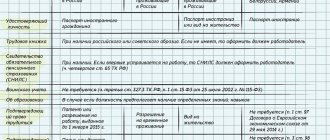The legislation of the Russian Federation has 2 regulations that establish the rules for regulating family relations between spouses and the procedure for dividing property assets upon divorce:
- Civil Code of Russia (part 1).
- Family Code of Russia.
The Civil Code of the Russian Federation regulates the division of common property of participants in a family union, which is in shared or joint ownership, in Chapter 16. It specifies what is considered common property and how it can be divided by spouses intending to divorce.
In the RF IC, the division of property of spouses during a divorce is spelled out in more detail. It sets out the following standards:
- On the types of legal regimes for the common assets of participants in family relationships.
- About what is meant by jointly acquired property of spouses in the Family Code.
- On the list of material assets related to the personal property of the wife and husband.
- On the procedure for dividing joint assets by peace agreement or in court.
Article 160. Divorce
1. Divorce of marriage between citizens of the Russian Federation and foreign citizens or stateless persons, as well as marriage between foreign citizens on the territory of the Russian Federation, is carried out in accordance with the legislation of the Russian Federation.
2. A citizen of the Russian Federation living outside the territory of the Russian Federation has the right to divorce a spouse living outside the territory of the Russian Federation, regardless of his citizenship, in a court of the Russian Federation. If, in accordance with the legislation of the Russian Federation, divorce is allowed in the civil registry office, the marriage can be dissolved in diplomatic missions or consular offices of the Russian Federation.
3. Divorce of marriage between citizens of the Russian Federation or dissolution of marriage between citizens of the Russian Federation and foreign citizens or stateless persons, committed outside the territory of the Russian Federation in compliance with the legislation of the relevant foreign state on the competence of the bodies that made decisions on divorce, and to be applied upon dissolution marriage legislation is recognized as valid in the Russian Federation.
4. Divorce between foreign citizens, completed outside the territory of the Russian Federation in compliance with the legislation of the relevant foreign state on the competence of the bodies that made decisions on divorce, and the legislation to be applied upon divorce, is recognized as valid in the Russian Federation.
Article 163. Rights and obligations of parents and children
The rights and obligations of parents and children, including the obligation of parents to support children, are determined by the legislation of the state in whose territory they have a joint place of residence. In the absence of a joint place of residence of parents and children, the rights and obligations of parents and children are determined by the legislation of the state of which the child is a citizen. At the request of the plaintiff, the legislation of the state in whose territory the child permanently resides may be applied to child support obligations and other relations between parents and children.
Article 161. Personal non-property and property rights and obligations of spouses
1. Personal non-property and property rights and obligations of spouses are determined by the legislation of the state in whose territory they have a joint place of residence, and in the absence of a joint place of residence by the legislation of the state in whose territory they had their last joint place of residence. Personal non-property and property rights and obligations of spouses who do not have a common place of residence are determined on the territory of the Russian Federation by the legislation of the Russian Federation.
2. When concluding a marriage contract or an agreement on the payment of alimony to each other, spouses who do not have a common citizenship or common place of residence may choose the legislation to be applied to determine their rights and obligations under the marriage contract or under the agreement on the payment of alimony. If the spouses have not chosen the legislation to be applied, the provisions of paragraph 1 of this article shall apply to the marriage contract or their agreement on the payment of alimony.
Age required for marriage registration
The generally accepted “age of marriage” is 18 years. This is also the age of full legal capacity.
However, you can get married at the age of 16. But to do this, you must apply for permission from the local government, confirming the presence of valid reasons.
The most common reasons for lowering the marriageable age:
- Expecting a common child;
- Or his birth;
- Already established family relationships.
It is worth noting that parental approval for minors is not required.
In some constituent entities of the Russian Federation, it is possible to get married before the age of 16.
But for this you will need to submit an application to the central executive body addressed to the Governor. This can be done both by those wishing to get married and by their parents. But if there is a conflict between them, then this application will be considered only after the approval of the guardianship and trusteeship authorities.
For example, in Moscow and the region, the governor will give permission for registration provided that the bride is pregnant, has a common child, and also if there is a threat to the life of any of the future spouses.
The minimum age at which the registry office will accept an application is not established by law. But, based on the fact that the list of required documents includes a citizen’s passport, we can conclude that this threshold is 14 years.
Young people who get married before reaching the age of 18 become absolutely capable (emancipation occurs) and do not lose this status even after the divorce.







